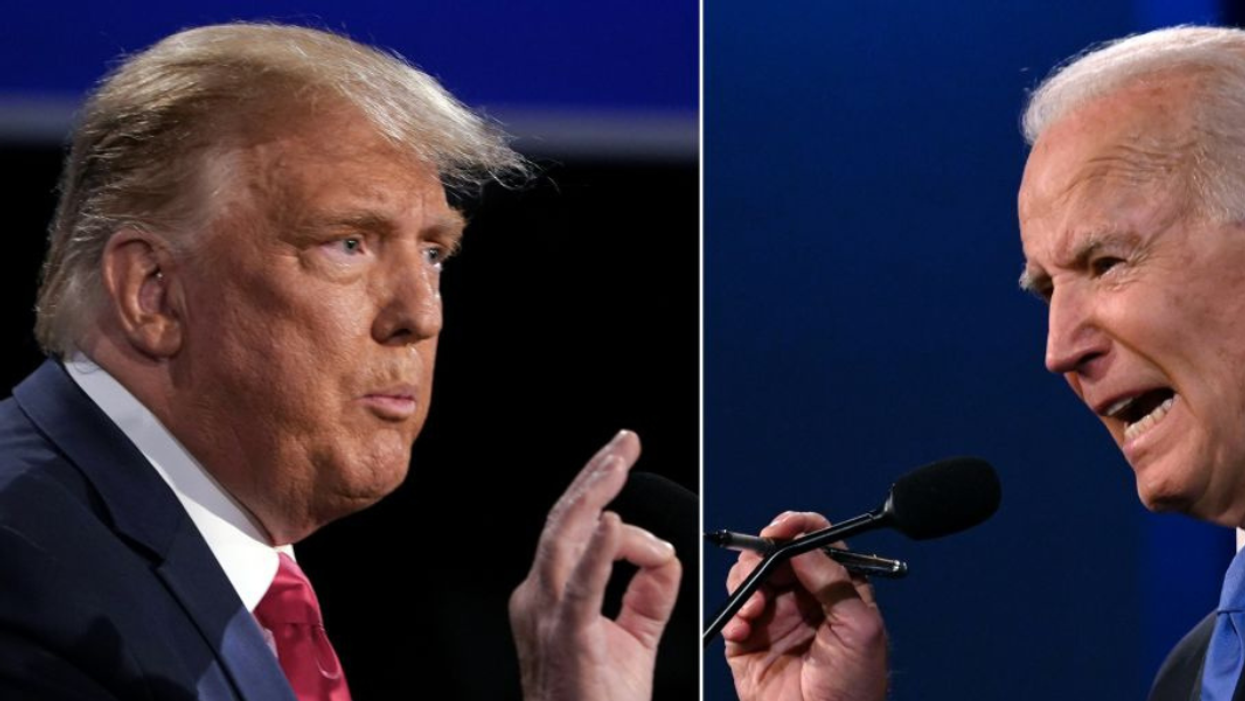Corbin is Professor Emeritus of Marketing at the University of Northern Iowa.
Sherlock Holmes’ statement,“It is a capital mistake to theorize before one has data,” in Arthur Conan Doyle’s “A study in Scarlet,” is a pearl of wisdom to use when thinking about America’s political future.
The following data applies to the Nov. 5, 2024 presidential election notion that Donald Trump and Joe Biden are too old to be president.
First, according to a Nov. 10-14 Morning Consult poll, 65% of Americans don’t want Biden `OR’ Trump to run again. Likewise, the Nov. 26-30, 2022 CNBC All-America Economic Survey found 61% of the public think Trump should not seek the presidency and 70% say the same about Biden.
Second, in a fall 2022 Harvard CAPS/Harris poll, 60% of Americans would consider voting for a moderate independent if Biden and Trump were seeking office.
The data is quite consistent regarding electorate thoughts of Trump and Biden’s presidential future. It gets worse.
According to a Media voting exit poll on Nov. 8, 2022, only 44% of the respondents had a “favorable” opinion of the Democratic Party as well as of the Republican Party. Political party perceptions are hurting.
Karl Rove, a GOP consultant and contributor to the conservative Wall Street Journal stated, “… Americans may believe they can do better than a 78-year-old Republican and a nearly 82-year-old Democrat holding a rematch” (The Wall Street Journal, Nov. 17, 2022).
In reference to age, longitudinal research indicates that cognitive deterioration typically accelerates in one’s 70’s (Aartsen, et al, Journal of Gerontology, 2002). Both Trump and Biden are united in dotage, along with 26 Senators and 76 in the House of Representatives.
Take note of Derek Thompson’s comments from his article (Why do such elderly people run America?) that was published in The Atlantic, “... old governance can be bad governance. … it seems risky to leave the most important issues of life, death or welfare in the hands of a group of septuagenarians who are in the crosshairs of biologically predictable cognitive decline” (March 5, 2020).
The four databases plus a reality therapy understanding of cognitive decline and the importance of presidents making wise decisions strongly suggests it is time to seek presidential candidates under the age of 70. Let’s examine the GOP and Democrats’ presidential candidate bench.
The under age 70 Republicans who have hinted of wanting to be president include: Greg Abbott, Chris Christie, Ted Cruz, Ron DeSantis, Nikki Haley, Brian Kemp, Kristi Noem, Mike Pence, Mike Pompeo, Tim Scott, Chris Sununu and Glenn Younkin. GOP presidential wannabes over 70-years-old include John Bolton, Mike DeWine, Asa Hutchinson, Rick Scott and Donald Trump.
On the Democrats’ side, the potential under 70-year-old presidential candidate pool might include: Stacey Abrams, Cory Booker, Pete Buttigieg, Kamala Harris, Ro Khanna, Amy Klobuchar, J.B. Pritzker, Gavin Newsom, Josh Shapiro and Gretchen Whitmer. The over age 70 Democrat presidential hopefuls include Joe Biden, Bernie Sanders and Elizabeth Warren.
Brookings Institution senior fellow and Wall Street Journal contributor William Galston noted “a 2024 rematch between Joe Biden and Donald Trump would feature two of the least popular presidential candidates in modern history—even within their own parties. If 2024 were a rerun of 2020, 58% of voters say that they would `consider’ a `moderate independent presidential candidate” (Aug. 12, 2022, Brookings). Galston’s data reference is similar to the Harvard CAPS/Harris poll cited earlier.
In 2022, dozens of former Republicans and Democrats created a new centrist-based party, called Forward. Some interesting moderate presidential candidates could include Liz Cheney, Larry Hogan, David Jolly, John Kasich, Christine Todd Whitman or Andrew Yang.
The 2024 presidential race is in full swing. It’s going to be a wild ride for Republicans, Democrats and the Forward Party, let alone the voters.



















Trump & Hegseth gave Mark Kelly a huge 2028 gift